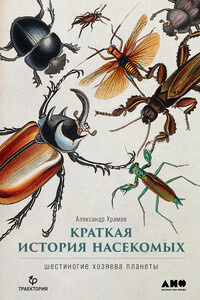Английский язык для специальных и академических целей: Международные отношения и зарубежное регионоведение. Часть 1 - [8]
Now back to Britain and the experience of the Britons in the delivery of security of resources. British democracy displayed a burst of energy in the aftermath of the Second World War. The British people had fought through the war together. An idea of social justice had emerged which came to be seen, at least in part, to be what the war was fought for. This idea was articulated in particular in the Beveridge Report on social security. It was an idea of universal social protection, and idea about extending to everyone the protection it is the purpose of democracy to deliver. This idea was put into effect in the great reforms of the late 1940s: family allowance, social security, income support and above all the National Health Service. Here was a democracy performing at its best. In the NHS, that was displayed magnificently. Health care in Britain pre-NHS was a shambles. There were areas where it was excellent: good, free and universally available. But about half of the population did not have access to a family doctor and the poor mostly had to pay for health care.
With the NHS the government cut through the rot, nationalised the whole system of hospitals, brought all General Practitioners into the national service, and abolished inequality by giving everyone the access the privileged had had previously. In hindsight, this was an astonishing achievement, and an astonishingly democratic one.
However, if we look more carefully at those reforms and how they evolved, we find that British democracy was not able to sustain that once-in-a-lifetime democratic burst.
First, the NHS was never able to deliver what was promised. It immediately ran into deep financial problems and has ever since been cash strapped. By the end of the century, the effects of accumulated underinvestments were visible in poor standards, inefficiency, low morale within the service and low confidence in the population. British democracy proved unable to maintain its own creation. It is possible that the NHS is presently being revitalised with new investments, but the jury is still out on this and I for one remain sceptical.
Unit I. UK: from Empire to Democracy
Unit I. UK: from Empire to Democracy
Second, no similar effort materialised in that other great area of British inequality: education. The situation here was the same as in health care, or worse. A minority of children, here a small minority, the children of the rich, had access to excellent schooling in private schools behind a wall of high fees, while the majority of children languished in second-rate, underfunded and underperforming public schools. It is conspicuous that British democracy, at the time when the need to follow through from rights to resources was so well understood in health care, was unable to mobilise the same understanding and resolve in education. As a result, the British school system remains to this day deeply undemocratic and school policy limited to perpetual tinkering with the public sector with no inclination or ability to break down the inequality of the private-public division.
Third, in spite of impressive welfare state reforms the system that emerged proved incapable of affording the population that most basic of democratic protections: protection against poverty. Poverty rates in Britain, both among the elderly and among children, have remained high. It was thought that the post-1945 welfare reforms would finally overcome poverty. When that anticipation failed, British democracy, instead of reforming again, settled down to an embarrassing acceptance of persistent poverty among affluence. It is a matter of record that poverty rates in Britain were exceptionally high by European comparison all through the second half of the twentieth century. It is the proud boast of the present government that it is on the path to abolishing poverty, at least among children, but that boast is premature. It is trying to do so with the help of carefully engineered means-tested benefits>13>. We have enough knowledge from social policy theory to say that this strategy can reduce poverty, which it is indeed doing, but that it cannot eradicate it, that it is arbitrary in its effects because it is never target efficient — as was put dramatically on display by the Parliamentary Ombudsman in the scandal of out-of-control overpayments and underpayments of tax credits in Britain in 2004-5 — and that it comes at the price of indignities and harassments reminiscent of the old poor-law regime. In the best European welfare states poverty has been eradicated — so we know it can be done. But British democracy remains on the defensive in poor relief because it has been unable to mobilise the resolve and resources to put itself on the offensive.
These are examples of the democratic deficit in British governance: its potential is not realised in delivery. British democracy should do better but there is not enough force in the system to carry through to the difficult matter of delivering protections in all relevant forms to all citizens.

Виктор Пронин пишет о героях, которые решают острые нравственные проблемы. В конфликтных ситуациях им приходится делать выбор между добром и злом, отстаивать свои убеждения или изменять им — тогда человек неизбежно теряет многое.

В этой книге океанограф, кандидат географических наук Г. Г. Кузьминская рассказывает о жизни самого теплого нашего моря. Вы познакомитесь с историей Черного моря, узнаете, как возникло оно, почему море соленое, прочтете о климате моря и влиянии его на прибрежные районы, о благотворном действии морской воды на организм человека, о том, за счет чего пополняются воды Черного моря и куда они уходят, о многообразии животного и растительного мира моря. Книга рассчитана на широкий круг читателей.

«Любая история, в том числе история развития жизни на Земле, – это замысловатое переплетение причин и следствий. Убери что-то одно, и все остальное изменится до неузнаваемости» – с этих слов и знаменитого примера с бабочкой из рассказа Рэя Брэдбери палеоэнтомолог Александр Храмов начинает свой удивительный рассказ о шестиногих хозяевах планеты. Мы отмахиваемся от мух и комаров, сражаемся с тараканами, обходим стороной муравейники, что уж говорить о вшах! Только не будь вшей, человек остался бы волосатым, как шимпанзе.

Настоящая монография посвящена изучению системы исторического образования и исторической науки в рамках сибирского научно-образовательного комплекса второй половины 1920-х – первой половины 1950-х гг. Период сталинизма в истории нашей страны характеризуется определенной дихотомией. С одной стороны, это время диктатуры коммунистической партии во всех сферах жизни советского общества, политических репрессий и идеологических кампаний. С другой стороны, именно в эти годы были заложены базовые институциональные основы развития исторического образования, исторической науки, принципов взаимоотношения исторического сообщества с государством, которые определили это развитие на десятилетия вперед, в том числе сохранившись во многих чертах и до сегодняшнего времени.

Эксперты пророчат, что следующие 50 лет будут определяться взаимоотношениями людей и технологий. Грядущие изобретения, несомненно, изменят нашу жизнь, вопрос состоит в том, до какой степени? Чего мы ждем от новых технологий и что хотим получить с их помощью? Как они изменят сферу медиа, экономику, здравоохранение, образование и нашу повседневную жизнь в целом? Ричард Уотсон призывает задуматься о современном обществе и представить, какой мир мы хотим создать в будущем. Он доступно и интересно исследует возможное влияние технологий на все сферы нашей жизни.

Что такое, в сущности, лес, откуда у людей с ним такая тесная связь? Для человека это не просто источник сырья или зеленый фитнес-центр – лес может стать местом духовных исканий, служить исцелению и просвещению. Биолог, эколог и журналист Адриане Лохнер рассматривает лес с культурно-исторической и с научной точек зрения. Вы узнаете, как устроена лесная экосистема, познакомитесь с различными типами леса, характеризующимися по составу видов деревьев и по условиям окружающей среды, а также с видами лесопользования и с некоторыми аспектами охраны лесов. «Когда видишь зеленые вершины холмов, которые волнами катятся до горизонта, вдруг охватывает оптимизм.